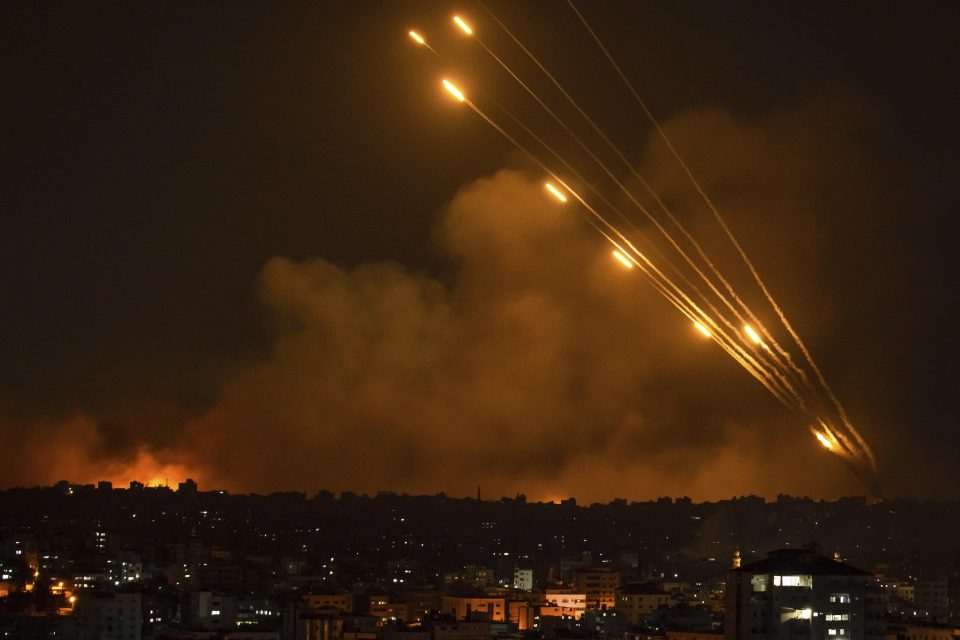At 6:30 am (9 am IST) on October 7, militants of Iran-backed Hamas infiltrated Israel by land, sea and air in an orchestrated surprise attack from the Gaza Strip. The group fired nearly 5,000 missiles targeted at airports and military fortifications in Southern Israel. The attack re-ignited subdued tensions that had originally begun in August 2005.
Israel has declared war on the militant group. The country’s Prime Minister Benjamin Netanyahu said they would demolish Hamas’s strongholds in Gaza, asserting, “We are at war, and we will win.”
What We Know About The Israel War So Far
Hamas controls the Gaza Strip. It aims to establish an Islamic state in Palestine. The group is considered a terrorist organisation by Israel, the United States, and other countries.
The attack killed over 900 Israeli citizens, including women, children and elders, with thousands of others injured and/or abducted. This is one of the biggest attacks on Israel in years.
The escalating battle has prompted the Israeli military to respond with its Iron Dome missile defence system. Later that day, Israel cut off electricity, fuel and goods supply to the strip where 23 lakh Palestinians live.
The Israel Defence Forces (IDF) carried out strikes in Gaza, killing nearly 700 people in the retaliatory attacks. They also called up about 3,00,000 reservists. These soldiers are not serving in the regular army but can be called to serve whenever needed.
Impact Of The War Across Asset Classes
A knee-jerk reaction was seen across asset classes globally on the first Monday after the attack. Several Global Equity Markets fell, and some consolidated their losses to settle higher. Oil Prices saw a sudden surge, reversing their recent losses. The impact would only be prolonged if the war extends.
The conflict still poses huge uncertainty and risk for the stock markets and could impact inflation rates. The trust and appeal of gold as a safe haven will be boosted, and gold may gain further.
Crude Oil
The crude oil prices saw a knee-jerk spike after the Hamas attacks on Israel. The price of Brent Oil Futures and US Crude Oil WTI Futures climbed as much as 5% the day after the attack.
The prices may increase by at most 10-12% in the near term. Beyond that, the US will open its reserves to reduce oil prices to prevent Russia from profiting from higher crude oil prices.
The impact on the oil prices may stay limited beyond the short-term, provided the war does not escalate further. If the oil prices remain higher for longer, it could hurt the rupee’s position, triggering a market with cautious and risk-averse investor sentiment. This could lead to foreign equity outflows and an elevated inflation rate.
Stock Markets
Indian stock market indices traded lower following the mixed cues from global markets amid the geopolitical tensions in the Middle East. On October 9, domestic benchmark indices, S&P BSE Sensex and NSE Nifty50 index tumbled. All sectoral indices were trading in the red.
In Asia, markets in Japan and South Korea were closed for a public holiday. Other major Asian Indices traded mixed. Australia’s ASX 200 jumped, breaking a five-day losing streak. Hong Kong’s Hang Seng Index too closed higher. Conversely, China’s Shanghai Composite Index fell. Indices in the US, S&P 500, Nasdaq Composite and Dow Jones Industrial Average, gained.
How Should Investors Tread?
Analysts and brokers warn traders to be cautious. However, long-term investors can slowly accumulate high-quality stocks available at lower valuations. As the developments of the war unfold, the market would be better informed about the longevity and spread of this conflict. Till then, refrain from big, risky trades.


 Signals, Powered By EquityPandit
Signals, Powered By EquityPandit

